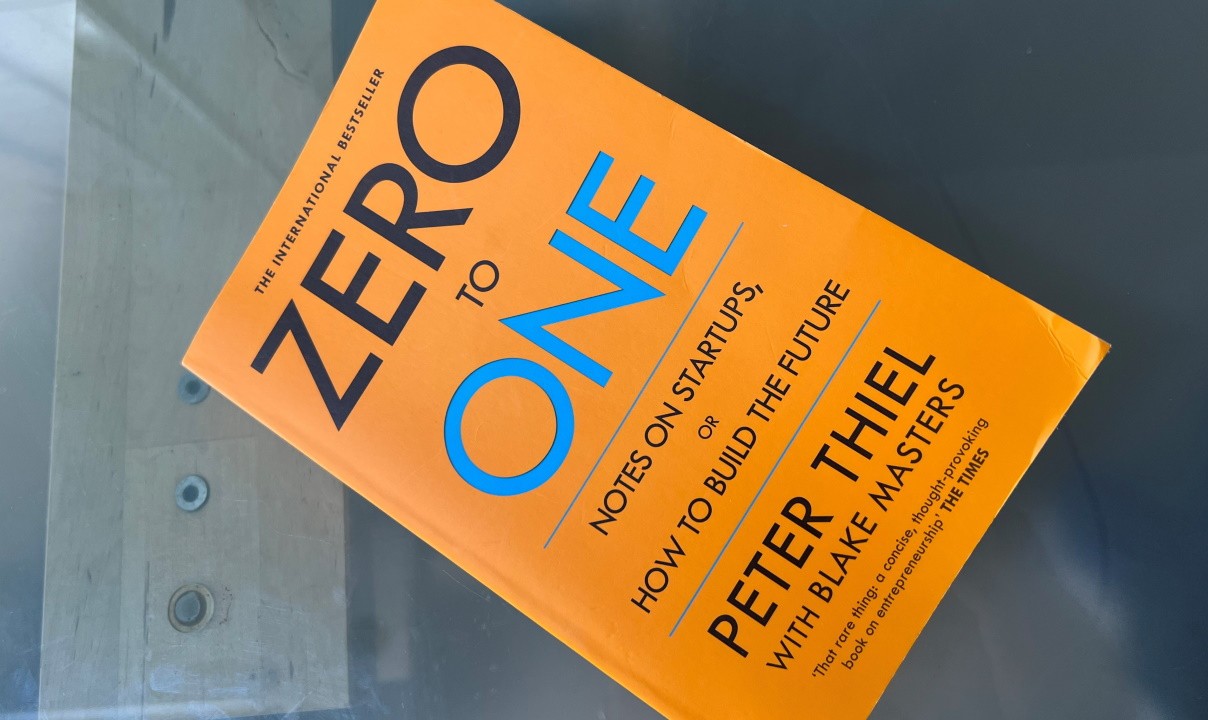Zero to One by Peter Thiel is a staple on most startup reading lists and why I made sure to add it to my site GoodBusinessBooks.com. His pedigree cannot be disputed having founded PayPal which went on to be sold to eBay, then later Palantir and also be one of the first investors in Facebook. His net worth of over $7 billion suggests he knows a little something about making businesses successful.
There are some gems in this book however having been published in 2014, it is starting to show its age.
The main premise of the book is around creating something "new", hence the 0 to 1. Not incrementally improving on something existing (n+1), but making something new.
He asks "what valuable company is nobody building"? and gives a good account of the Dot Com crash and how the gold rush resulted in inflated expectations and companies such as Pets.com losing $300 million in investment.
He discusses the importance of creating a monopoly, being the last mover in a market and making that monopoly endure.
Peter discusses people whom have achieved massive success (some being serial entrepreneurs such as Elon Musk) and how much luck did or did not factor into their success including Bill Gates, Jeff Bezos and Warren Buffet, with Warren Buffet describing himself as a member of the "lucky sperm club". His closing remark on the matter - "You are not a lottery ticket" implying he believes that success transcends a persons circumstances and that luck does not factor as much as that humble CEO's would have us believe.
I found the descriptions of business practices by Venture Capital companies fascinating, with their scattergun approach, looking for one investment to pay off to cover the others and the potential of companies/potential investments focussing on the companies ability to scale. Something I already knew, but Peter brings it to life and makes interesting.
Other interesting topics around sales included a recap on Customer Lifetime Value (CLV) and Customer Acquisition Cost (CAC) - these and the ratio between these is something i'm actually covering at the moment in my Entrepreneurship & Innovation Masters degree!
I did like his anecdote on choosing investments on what the pitchers where wearing based on previous history.. i.e. where the pitchers tech experts wearing casual clothes? = they've got the ability to build this = invest. Whereas, are the pitchers wearing suits? = they aren't the tech experts, they are selling an idea, and the expertise to building the product is not guaranteed = no investment. Interesting.
Something interesting I learnt in this book..
"In 2012, when the average airfare each way was $178, [some] airlines made only 27 cents per passenger trip" - How crazy is that?
"The graffiti artist who painted Facebook's office walls in 2005 got stock that turned out to be worth $200 million" - Wowzers
There are parts of this book that seem to go off on tangents that are a little out of place including discussions on national/cultural pessimism & optimism, philosophy, secrets and conventions but then returns to discuss forming companies, leading them and sales.
Oddly his closing remarks are around what the future of mankind looks like with the increasing advancement in technology and whether we are likely to annihilate ourselves or not.. again.. slightly going off tangent.
This is a book with what seems like Peters thoughts on Entrepreneurship mixed in with a few random thoughts on other things.
Whilst i'm sure lots of people like this book, I personally can't place it too highly in my all time list of favourite books. Though it does rightly deserve its place on GoodBusinessBooks.com.

-- Lee















